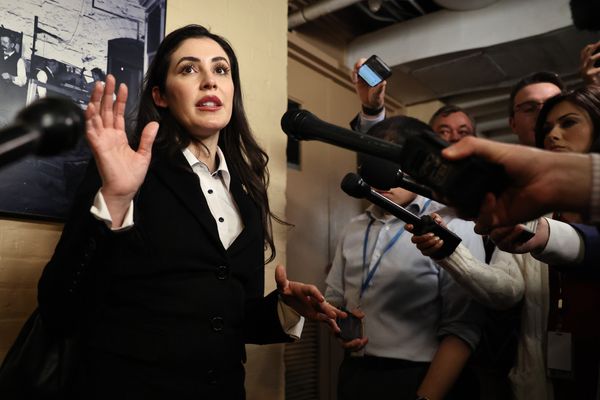A record number of LGBTQ candidates are running for all levels of office this year, motivated in part by red states passing scores of laws targeting LGBTQ people.
Why it matters: LGBTQ voters are among the fastest-growing parts of the electorate, and also have higher turnout than other voters. Yet there are only 11 out LGBTQ lawmakers serving in Congress.
What we're watching: At least 104 LGBTQ candidates have mounted campaigns for House or Senate seats this year. Some of those campaigns have already ended, but as of last week, 57 candidates are still actively running, according to data provided to Axios by the Victory Fund, which supports and tracks LGBTQ leaders.
- That's a nearly 20% increase in LGBTQ congressional candidates compared to the 2020 election cycle, when 87 people ran.
"People know that their rights and their livelihoods are on the ballot and that who is [in office] helps influence the decision," Sean Meloy, Victory Fund's vice president of political programs, told Axios.
What we're watching: A handful of congressional candidates have the potential to shatter the rainbow ceiling in multiple ways.
- Robert Garcia, the mayor of Long Beach, California, could become the first out immigrant LGBTQ elected to Congress, after winning the Democratic nomination for California's 42nd District.
- Rev. Jasmine Beach-Ferrara, who won the Democratic primary for North Carolina's 11th District, would be the first out LGBTQ person elected to any federal position from the state.
At the state level, candidates say discriminatory laws have motivated them to seek a seat in their legislatures.
- "It was really just the realization that my experience fighting for marriage really did have a profound impact on me, and just this need to continue doing what's right," Jim Obergefell, whose lawsuit led to the nationwide legalization of same-sex marriage, told Axios of his decision to run for Ohio state house.
What they're saying: Will Rollins, the Democratic nominee looking to unseat Rep. Ken Calvert in California's 41st District, frames LGBTQ rights as a matter of national security.
- "The United States cannot out compete other countries unless we establish equality under our laws so that people can achieve their human potential and we can attract immigrants and LGBTQ folks from all over the world who want to come here and invent and contribute to our economy and our military," Rollins said.
- As a high school junior, Rollins watched the Twin Towers crumble on 9/11 and immediately wished to enlist, but was turned off by the 'Don't Ask Don't Tell' policy. Now, Rollins is on the cusp of being just the second gay man from California to serve in Congress.
Between the lines: LGBTQ candidates face unique challenges on the campaign trail.
- "In so many places, there hasn't been an LGBTQ candidate who's stepped forward before, so there's misgiving and apprehension and sometimes there's an animus," Meloy said.
"That representation, you know, I didn't have that growing up," Erick Russell, who's running for state treasurer in Connecticut, told Axios. Russell would be the first LGBTQ person of color to be elected to statewide office there.
- "I dealt with this professionally as well, where I wasn't always sure that I would be able to be out and comfortable in a lot of these spaces that I was navigating," Russell said. "It's really important that we have that representation."







